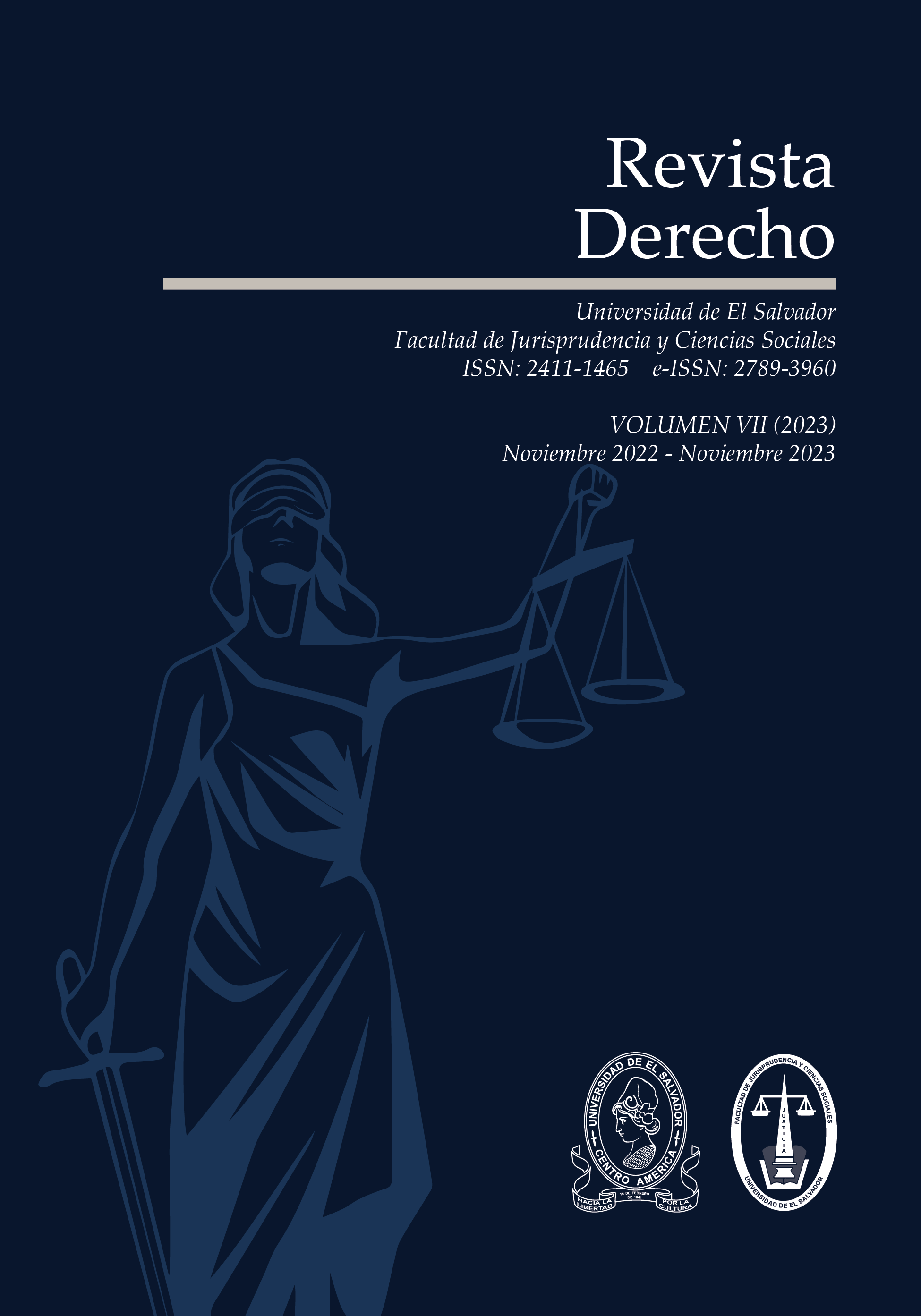Impunity: the issue of the extraneus penalty in the crime of embezzlement
Keywords:
embezzlement, special crime, extraneus, intraneus, corruption, authorship, participationAbstract
This academic article holds as a fundamental premise the multilateral and constant debate on the punishment or sanction of outsiders in special self-owned crimes, evaluating the elusive stance on an effective solution to the problem of impunity generated through the noticeable increase in the participation of individuals who do not have special status in such crimes. Based on the above, it presents the domestic regulatory landscape on this issue, along with the doctrinal difficulties arising from the absence of special status despite the necessary or direct contribution to the commission of the act. In this regard, two objectives guide the article. The first one is to analyze the theory of the communicability of circumstances and the status of the extraneus in the commission of the crime of embezzlement within the context of authorship and participation. The second is to highlight the practical problems stemming from the lack of treatment of the attribution of authorship to the extraneus in our regulatory system. With respect to these objectives, the text compiles an analysis of the doctrinal aspects of economic criminal law applicable to the treatment of extraneus and intraneus, as well as the domestic jurisprudential perspective on this matter, thus revealing normative gaps and criticisms in this context. Therefore, a qualitative research method with an applied research model has been used, given the increase in corruption at the national level in recent years, which demands regulatory adjustment based on demonstrative evidence from material sources that acknowledge the extensive participation of third parties in special crimes. The lack of possible condemnation alternatives would intrinsically facilitate impunity and, subsequently, corruption.
Downloads
References
Acale Sánchez, María. “La lucha contra la corrupción en el ámbito supranacional y su incidencia en el Código Penal español”, Diritto Penale Contemporaneo, número 3-4, (2014): 27. https://archiviodpc.dirittopenaleuomo.org/foto/ 4062DPC_Trim_3-4_2014.pdf#page=9&view= Fit.
Ansuátegui Roig, Francisco Javier. “Argumentos para una teoría de los derechos sociales”, Revista Derecho del Estado, número 24 (2010): 61.
Cámara de lo Penal de la Primera Sección de Occidente, Santa Ana, Incidente de apelación, Referencia 209-2018. El Salvador: Corte Suprema de Justicia, 2018.
Cámara Tercera de lo Penal de la Cuarta Sección del Centro, San Salvador, Incidente de apelación, Referencia 47-P-17 1C2017. El Salvador: Corte Suprema de Justicia, 2017.
Cámara de lo Penal de la Primera Sección de Occidente, Santa Ana, Incidente de apelación, Referencia 209-2018. El Salvador: Corte Suprema de Justicia, 2018.
Cámara Tercera de lo Penal de la Primera Sección del Centro, San Salvador, Incidente de apelación, Referencia inc-243-2017. El Salvador: Corte Suprema de Justicia, S.f..
Código Penal Salvadoreño. El Salvador: Asamblea Legislativa de El Salvador, 2011.
Comisión de Estudio del Proyecto de Constitución, Informe único (San Salvador, 1983).
De la Mata Barranco, Norberto. Derecho penal económico y de la empresa. Madrid: Dykinson, 2018, 415.
Díez Ripollés, José Luis y Alejandra Gómez-Céspedes. “La corrupción urbanística: Estrategias de análisis”, Revista española de investigación criminológica, número 6 (2008): 3, https://doi.org/10.46381/reic.v8i0.36.
JR, Costa y Paulo José. Curso de Derecho penal, 9. ed. Rvdo. y actual. Librería Saraiva, 2008. 139.
Ley de Probidad. El Salvador: Asamblea Legislativa de El Salvador, 2015.
Moreno Carrasco, Francisco y Luis Rueda García, Código Penal de El Salvador Comentado. San Salvador: Consejo Nacional de la Judicatura, 2004, 341.
Muñoz Conde, Francisco y Mercedes García Arán, Derecho Penal, parte general, octava edición. Valencia: Tirant lo Blanch, 2010, 260.
Quintero Olivares, Gonzalo, Manual de derecho penal: parte general 2. ed. (Navarra: Aranzadi, 2000): 606-607.
Roxin, Claus. Derecho penal: parte general, tomo I. Traducción de la segunda edición alemana por Diego Manuel Luzón Peña, Miguel Díaz y García Conlledo y Javier de Vicente Remesal. Madrid: Civitas, 1997, 338.
Sala de lo Constitucional, Auto interlocutorio de admisibilidad, Referencia 6-2016. El Salvador: Corte Suprema de Justicia, 2015.
Sala de lo Constitucional, Inconstitucionalidad, Referencia 53-2005/55-2005. El Salvador: Corte Suprema de Justicia, 2013.
Sala de lo Constitucional, Sentencia de Inconstitucionalidad, Referencia 22-2007Ac. El Salvador: Corte Suprema de Justicia, 2015.
Sala de lo Penal, Casación, Referencia 1C2017. El Salvador: Corte Suprema de Justicia, 2017.
Sala de lo Penal, Sentencia de casación, Referencia 3-CAS-2004. El Salvador, Corte Suprema de Justicia, S.f.
Terradillos Basoco, Juan María. “Mercado y administración pública / Criminalidad económica y corrupción política”. En El derecho penal en tiempo de cambios. Libro Homenaje al profesor Luis Fernando Niño (La Habana: Unijuris, 2016), 199.
Downloads
Published
Issue
Section
License
Copyright (c) 2023 Revista Derecho

This work is licensed under a Creative Commons Attribution-NonCommercial 4.0 International License.
The authors transfer the copyright rights in favor of the Faculty of Jurisprudence and Social Sciences of the University of El Salvador (through Aequus Editorial) to include their writing in Revista Derecho.








